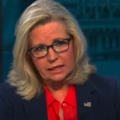In a bold move that resonates deeply with conservative values, Former President Donald Trump has vowed to establish a “Christian Visibility Day” on November 5th. This announcement comes as a direct response to the Biden administration’s decision to recognize the “Transgender Day of Visibility,” which this year fell on Easter Sunday, a day of profound significance for Christians worldwide. Trump’s commitment to instituting a day that celebrates Christian values and traditions underscores a pivotal moment in the ongoing discourse surrounding religious freedom and the preservation of traditional American values.
A Day of Recognition Amidst Cultural Shifts
The decision to propose “Christian Visibility Day” is not merely a political statement; it is a clarion call to Americans who feel their values are increasingly sidelined in the cultural and political landscape. Trump’s announcement was made during a spirited campaign rally in Green Bay, Wisconsin, where he expressed his dismay at the Biden administration’s choice of date for the “Transgender Day of Visibility.” “Such total disrespect to Christians,” Trump remarked, voicing a sentiment that many conservatives feel has become all too common in today’s society.
This move by Trump is emblematic of his broader strategy to appeal to Christian conservatives, who see him as a fervent champion of their cause. By aligning his campaign with the defense of Christian values, Trump is tapping into a deep vein of concern among conservatives over what they perceive as an assault on the foundational principles of American society.
The Battle for the Soul of America
The proposal of “Christian Visibility Day” is set against a backdrop of increasing secularization and a shift away from traditional religious affiliation in the United States. Data from last year revealed that members of Congress are significantly more Christian and more religious than the general American public, a discrepancy that highlights the growing divide between the nation’s political leadership and its populace.
This divide is further exacerbated by the rise of Christian nationalism, a movement that seeks to preserve America’s Christian heritage and influence public policy in accordance with Christian values. Trump’s pledge to make America “pray again” and his encouragement for supporters to purchase a $60 bible are indicative of his commitment to this cause, even as critics argue that such moves blur the lines between church and state.
A Response to Criticism and Division
The announcement of “Christian Visibility Day” has, unsurprisingly, sparked debate and controversy. Critics argue that it represents an attempt to impose a specific religious viewpoint on a diverse and pluralistic society. However, supporters of Trump’s initiative see it as a necessary counterbalance to what they perceive as an administration that has been hostile to Christian values.
The White House’s response to the backlash over the timing of the “Transgender Day of Visibility” sought to downplay the controversy, emphasizing President Biden’s Christian faith and his commitment to bringing Americans together. Yet, for many conservatives, this response falls short of addressing the underlying issues of respect and recognition for traditional Christian values in the public sphere.
Final Thoughts
As the nation grapples with these complex and contentious issues, Trump’s vow to create a “Christian Visibility Day” stands as a testament to his unwavering commitment to defending traditional values. In a time when many conservatives feel vilified by the media and marginalized by the current administration, Trump’s initiative offers a beacon of hope for those who yearn for a return to a more respectful and inclusive discourse on religion and culture in America.
The establishment of “Christian Visibility Day” is not just about recognizing the contributions of Christians to American society; it is about affirming the right of all Americans to celebrate their faith and traditions without fear of censure or marginalization. As we move forward, it is imperative that we strive for a balance that honors the diversity of beliefs and values that make up the fabric of our nation, while also safeguarding the principles that have guided us for centuries.
In championing “Christian Visibility Day,” Trump is not only advocating for the rights of Christians; he is calling for a recommitment to the foundational ideals of freedom, respect, and unity that have always defined the best of America. As this debate continues to unfold, it is clear that the conversation around religious freedom and traditional values will remain at the forefront of our national discourse, challenging us to consider what kind of America we wish to be.
Having trouble? If your comment doesn’t post, submit another comment right after it that says: Jimmy, please approve my comment that didn’t post.














Leave a Reply